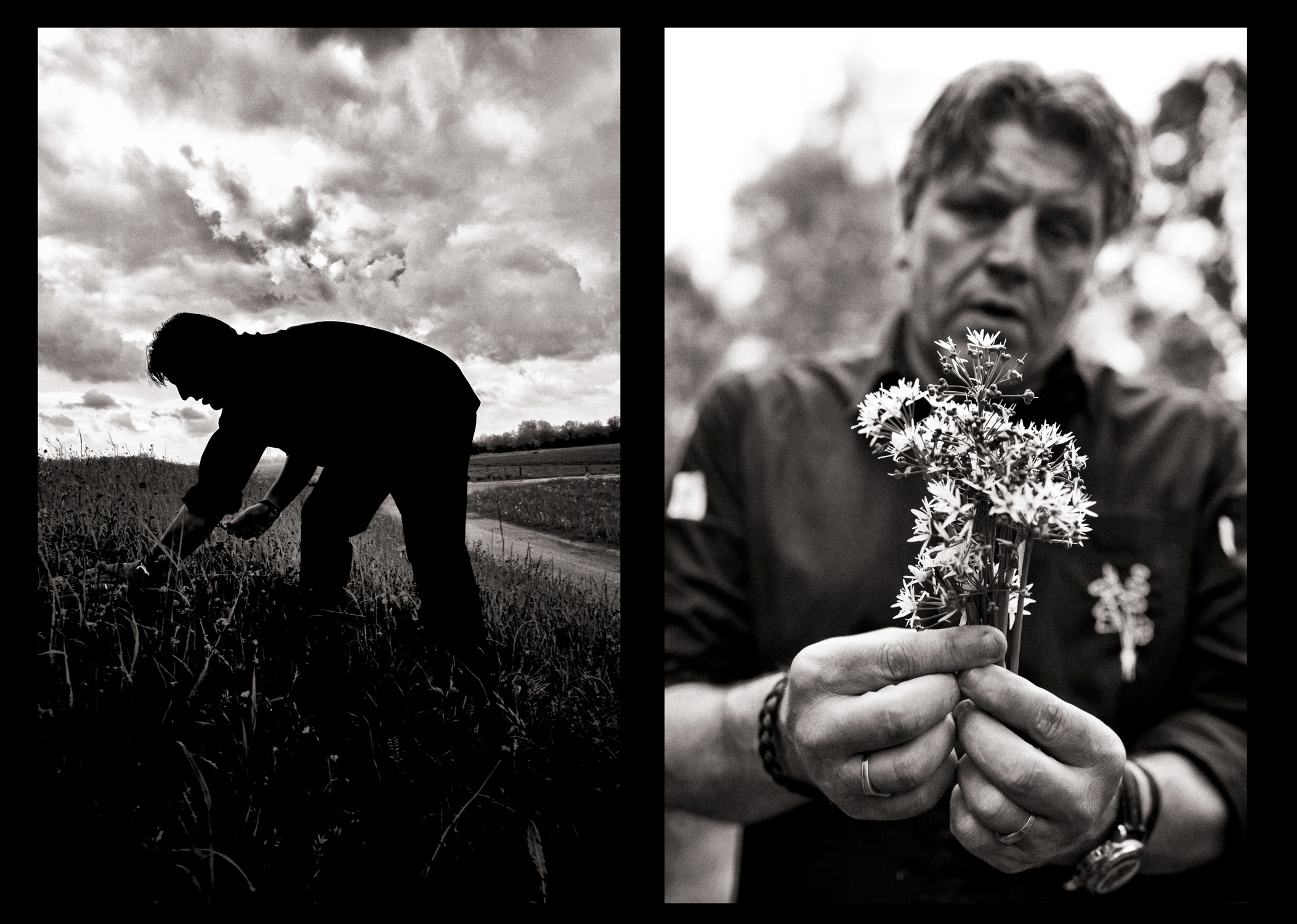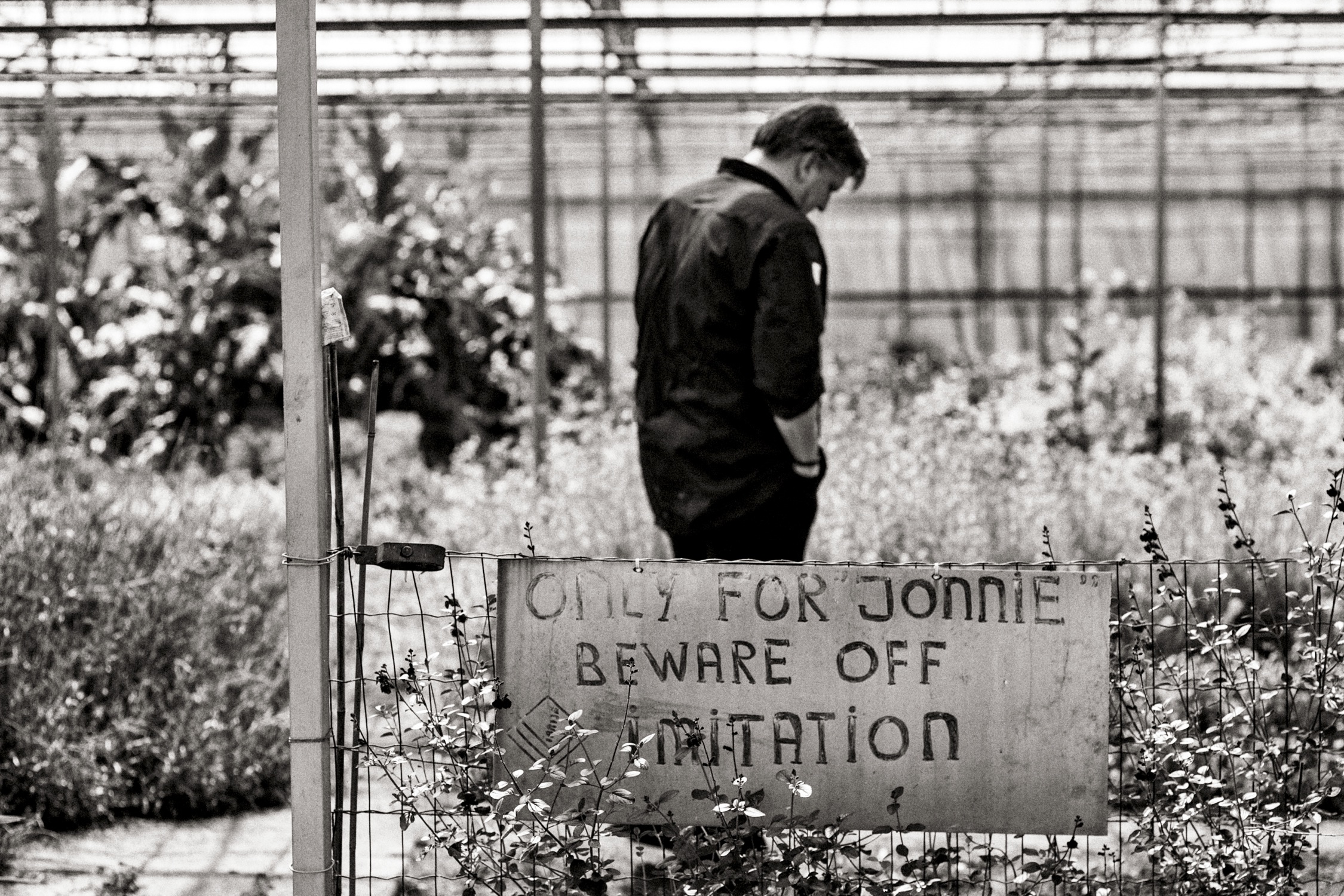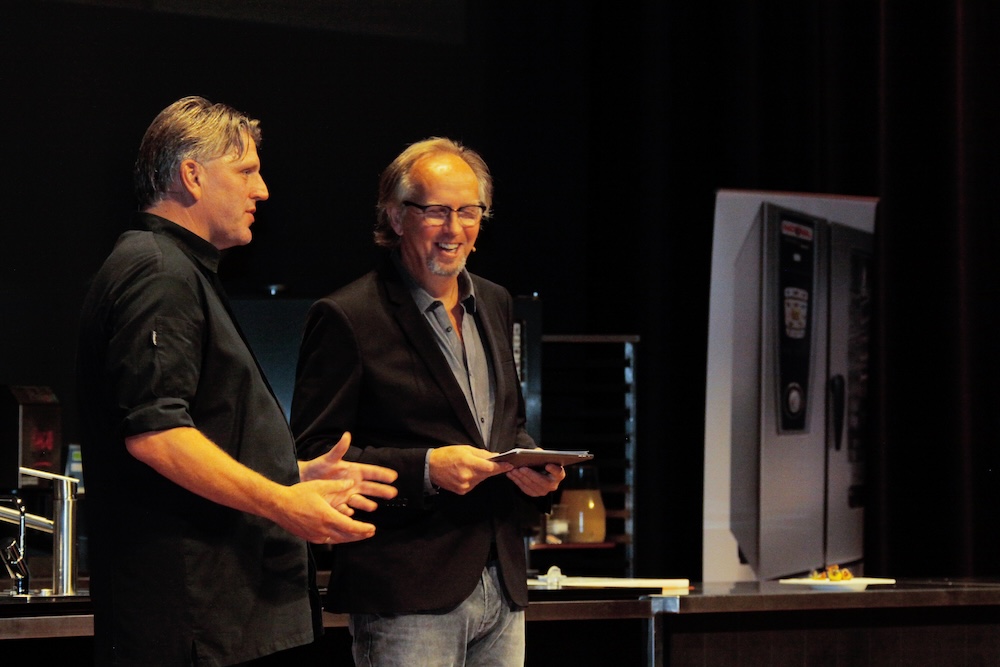The international world of gastronomy has lost one of its greats. Jonnie Boer, chef and owner of De Librije in Zwolle, the Netherlands died suddenly on April 23, 2025, at the age of 60. He was the first to bring the Netherlands into the top league of global fine dining. A pioneer of terroir-driven cuisine and a source of inspiration for chefs across Europe and beyond.
But Boer was more than a three-star Michelin chef. He was a storyteller and highlighted Dutch nature and culture, he was a mentor to generations, and a symbol of what modern gastronomy could achieve. He left behind his partner Thérèse, their children Jimmie and Isabelle, and a dedicated team that carried his vision with them every day. But in truth, he left behind something much bigger: a nation suddenly bereft of its most influential chef of the 21st century.
His legacy can be traced through six defining themes.
1. Leadership
Jonnie Boer never believed in the Gordon Ramsay style of leadership. Yelling, humiliating young cooks, creating fear in the kitchen – to him, that was not the way to build talent. He tought the profession itself was tough enough as it was; there was no need for a bullying. Jonnie was clear and direct, but always respectful and kind. He never tore people down. Unlike many other celebrated chefs – in France, the Netherlands, and beyond – he had no appetite for ego-driven domination. His approach was about cooperation, encouragement, and dialogue. With his strong yet gentle personality, he could convince without raising his voice. In recent years, as kitchens everywhere faced severe staff shortages, his open and humane style of leadership became the model for a new generation of chefs. Thanks to Jonnie’s example, the kitchen has become a better place to work in.
2. Techniques and ingredients
At every edition of Chefs Revolution – the avantgarde culinary festival he organized in Zwolle between 2012 and 2022 – Jonnie felt compelled to present something new. Each time, he delivered, even though he admitted to being nervous for months beforehand. One technique he embraced with particular passion was fermentation, not as an exotic experiment but as a natural extension of his cuisine. Instead of relying on dairy, he created pure fermentations to accompany his dishes, yielding layers of umami and bright acidity.
Long before René Redzepi and Claus Meyer launched the New Nordic Manifesto in 2004, Jonnie was already harvesting, foraging, and cooking by the same principles: seasonal, local, animal-friendly, rooted in terroir. His playground was the watery landscape of Giethoorn – sometimes called the Venice of the North. Famously he would go out on a flat-bottomed boat to forage wild herbs and plants like meadowsweet, bringing their untamed flavors onto the plate.
Jonnie liked to quote his great hero, Dutch football legend Johan Cruyff: “Every disadvantage has its advantage.” Unlike many of his peers, he never trained in the grand kitchens of France. That lack of formal classic training gave him the freedom to create his own path. His greatest sources of inspiration were the nature around him, his wife Thérèse, and his restless creative mind. Anyone who saw his notebooks filled with sketches of new dishes knew they were witnessing the work of a rare and original spirit.

3. Ambassador for hospitality
Over the past two decades, no one has represented Dutch gastronomy more powerfully than Jonnie Boer. Every media outlet sought him out, and every journalist left impressed by his wit and disarming honesty. Put him in front of a camera, and you got a real person with memorable one-liners. Sit down with him, and the conversation was always personal, sincere, and grounded in lived experience.
Jonnie hated pretense. He never paraded borrowed wisdoms, nor did he hide behind PR managers polishing his image. He valued authenticity and had a sharp radar for bullshit – and if someone was bluffing, he simply ignored them. While millions were spent on campaigns to make the restaurant industry more attractive to young people, Jonnie’s natural charisma did more to inspire newcomers than any marketing budget ever could. The restaurant industry in the Netherlands owes him a great deal.
He didn’t just represent De Librije and its sister businesses; he embodied the spirit of the entire Dutch restaurant scene. Always with his inseparable partner Thérèse. He carried his role with grace, though it sometimes weighed heavily. When De Librije once again became the only Dutch restaurant with three Michelin stars, the couple admitted they would have preferred to share that crown with another. Being the sole bearer of a nation’s culinary crown may sound glamorous, but in reality it is a great responsibility – one they carried with dignity and heart.
4. Mentor and teacher
Cooking is a craft you don’t just learn at school – you learn it by standing next to a master. The tradition of apprenticeship is as old as the profession itself, and Jonnie embodied it fully. Over the years, countless young Dutch chefs trained in his kitchen and later went on to open restaurants of their own: Sydney Schutte, Jeroen Achttien, Kees Meinderts, Bradley Deurloo, Nino Willems, to name just a few Dutch chefs.
But Jonnie had one golden rule for anyone leaving his kitchen: don’t copy, inspire. To make that point unforgettable, he staged one of the most legendary finales at Chefs Revolution. Nobody knew who the surprise closing act would be. The anticipation in the hall was electric. When the curtain finally rose, it revealed not a world-famous chef but a giant photocopier, noisily spitting out sheet after sheet. The message was crystal clear: originality, not imitation, is the path to success.
It was a brilliant metaphor in an era when global food companies treat standardization as sacred and individuality as a risk. In contrast, Jonnie insisted that restaurants should carry the unmistakable signature of their maker. He taught a generation of young chefs to find their own style, their own voice, and their own creative path. That, he believed, was the only way to grow – as a chef, and as a person.

5. Relentless pursuit of quality
For Jonnie Boer, quality was never negotiable. He accepted no compromises – ever. Suppliers and producers were not just vendors to him, but trusted partners in the pursuit of excellence. Many of these relationships lasted decades, built on respect and loyalty. He could talk poeticly about a famous Dutch Remeker cheese, a harvest of vegetables from local farmers, or a pike freshly caught from the nearby lakes.
His guiding principle was simple: only the best, sourced as locally and seasonally as possible, and always with animal welfare in mind. No shortcuts, no shady stories, no second-rate products at the door. Guests at De Librije paid top prices for an evening, and Jonnie felt a deep responsibility to give them nothing less than the very best.
He especially cherished the young couples who had saved up for months to dine at De Librije. They weren’t wealthy globetrotters flying in for a trophy meal – they were ordinary people, just like Jonnie himself, who longed for the experience of a lifetime. Giving them an unforgettable evening, together with Thérèse and their team, was what fueled his passion. Of course, he respected the jet-set clientele as well, but his heart was with the guests who arrived with anticipation in their eyes.
At its core, Jonnie’s mission was simple: to make people happy. To lift them, if only for a few hours, out of the heaviness of the world, and let them rediscover joy through food, wine, and hospitality. That was the true meaning of his craft.
6. Husband and father
If you could spot Jonnie, Thérèse was never far away. Together they formed one of the most remarkable culinary partnerships of our time. They complemented each other perfectly: her mastery of wine and hospitality alongside his creativity in the kitchen. Over the decades, they built De Librije not only as a restaurant, but as a shared life’s work. Those who knew them noticed how harmonious they were together – never undermining one another, always treating each other with respect. They were partners in marriage, and partners in their craft.
The hospitality world is filled with stories of burnout, broken relationships, addiction, and financial collapse. Jonnie and Thérèse endured the same storms, but never let their success consume them. In this too, they became role models for other couples navigating the intensity of running a restaurant together.
As a father, Jonnie had one guiding principle: his children should find their own path. There would be no pressure to inherit De Librije – the choice had to be theirs. And so Jimmie and Isabelle were given the space and freedom to grow, to explore, to decide who they wanted to become. In the end, both chose to join the family business. At De Librije’s 30th anniversary, it was announced that both children, together with head chef Nelson Tanate, would step in as the new generation of owners.
The Dutch documentary De Opvolging ('The Succession'), released a few months before his unexpected passing, revealed just how much freedom Jonnie and Thérèse had given their children. The message was the same one Jonnie had always carried himself: find your own style, stay true to yourself, and you will arrive where you are meant to be.
Author’s Note: My Connection with Jonnie Boer
I first met Jonnie Boer more than thirty years ago, and our paths crossed many times since. I interviewed Jonnie and Thérèse on countless occasions, and from 2012 to 2022 we co-created Chefs Revolution, the international avant-garde food festival in Zwolle, five times together. Working with them was a joy – Jonnie radiated positivity, creativity, and generosity.

One of my fondest memories is from the winter of 2011. In the Netherlands, outdoor ice skating on natural ice is more than a sport – it is a national passion and a cultural ritual. Jonnie, an avid skater, and I spontaneously organized a trip with about thirty eager food professionals across the frozen lakes of Giethoorn, the 'Venice of the North.' True to form, Jonnie turned the Dutch tradition of koek-en-zopie into haute cuisine. It is custom that small food stalls on the ice sell a limited number of tipical warming dishes: 'snert' (pea soup) and hot chocolate. Jonnie served us Michelin starred homemade pea soup with winter truffle and a delicate bisque. Only Jonnie could transform a rustic skating outing into a mind-blowing gastronomic experience.
For me, Jonnie was more than a chef; he was a true ambassador of Dutch gastronomy, a role model, and above all a kind human being. His passing feels like the loss of a cultural icon. He was our own Bocuse – and he will be deeply missed.